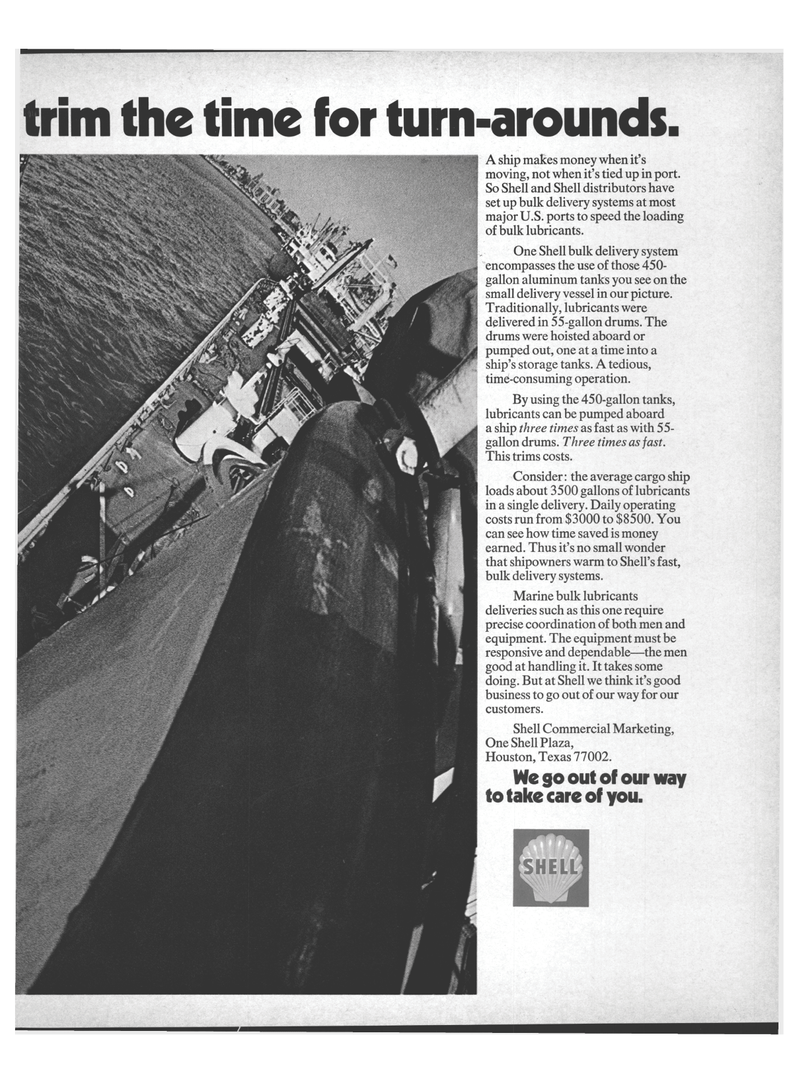
Page 11: of Maritime Reporter Magazine (November 1971)
Read this page in Pdf, Flash or Html5 edition of November 1971 Maritime Reporter Magazine
trim the time for turn-arounds.
A ship makes money when it's moving, not when it's tied up in port.
So Shell and Shell distributors have set up bulk delivery systems at most major U.S. ports to speed the loading of bulk lubricants.
One Shell bulk delivery system encompasses the use of those 450- gallon aluminum tanks you see on the small delivery vessel in our picture.
Traditionally, lubricants were delivered in 55-gallon drums. The drums were hoisted aboard or pumped out, one at a time into a ship's storage tanks. A tedious, time-consuming operation.
By using the 450-gallon tanks, lubricants can be pumped aboard a ship three times as fast as with 55- gallon drums. Three times as fast.
This trims costs.
Consider: the average cargo ship loads about 3500 gallons of lubricants in a single delivery. Daily operating costs run from $3000 to $8500. You can see how time saved is money earned. Thus it's no small wonder that shipowners warm to Shell's fast, bulk delivery systems.
Marine bulk lubricants deliveries such as this one require precise coordination of both men and equipment. The equipment must be responsive and dependable—the men good at handling it. It takes some doing. But at Shell we think it's good business to go out of our way for our customers.
Shell Commercial Marketing,
One Shell Plaza,
Houston, Texas 77002.
We 90 out of our way to take care of you.

 10
10

 12
12
